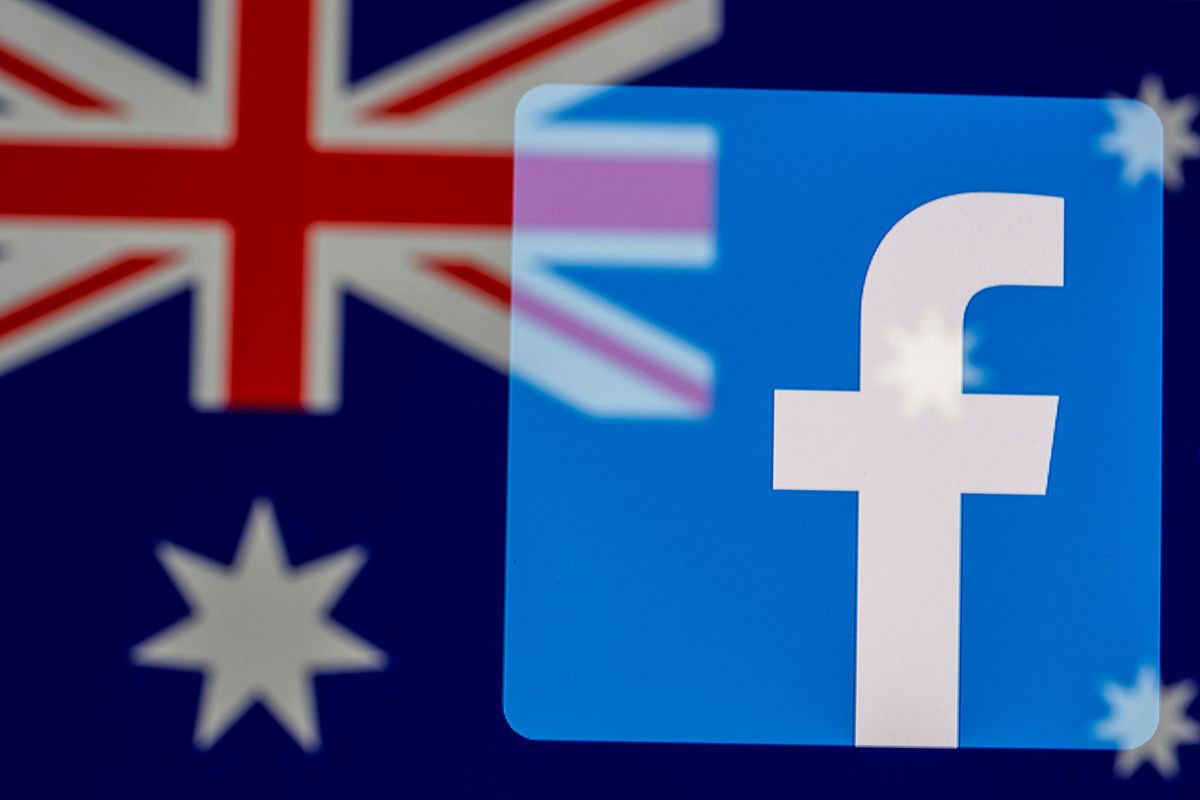Facebook has banned the sharing of news in Australia because of the country’s Media Bargaining law

A few minutes every morning is all you need.
Stay up to date on the world's Headlines and Human Stories. It's fun, it's factual, it's fluff-free.
Australian politicians said they would not be bullied. Last week, Google agreed to negotiate, but Facebook opted to stick to their guns.
Facebook users in Australia logged on to a very different-looking website on Wednesday, February 17. That was the day the social media company announced they would no longer allow Australian users to share or view news content on its platform.
The change is the result of Australia’s recently passed News Media Bargaining Code, which is intended to ensure media companies and news organizations are fairly compensated for their content. Both Google and Facebook, the two largest online news sources, had threatened to block such content on the platform if Australia did not agree to change the law.
Australian politicians said they would not be bullied. Last week, Google agreed to negotiate, but Facebook opted to stick to their guns.
Facebook changes the rules
On February 17, William Easton, Facebook’s Managing Director in Australia and New Zealand, released a statement to explain the news ban. Easton says the changes are a direct response to the country’s Media Bargaining law.
“The proposed law fundamentally misunderstands the relationship between our platform and publishers who use it to share news content. It has left us facing a stark choice: attempt to comply with a law that ignores the realities of this relationship, or stop allowing news content on our services in Australia. With a heavy heart, we are choosing the latter.”
Facebook insists its platform is a boon for journalism and media outlets. Easton claims, “Last year Facebook generated approximately 5.1 billion free referrals to Australian publishers worth an estimated AU$407 million.”
Furthermore, the statement adds, “We were prepared to launch Facebook News in Australia and significantly increase our investments with local publishers, however, we were only prepared to do this with the right rules in place.
“This legislation sets a precedent where the government decides who enters into these news content agreements, and ultimately, how much the party that already receives value from the free service gets paid. We will now prioritise investments to other countries, as part of our plans to invest in new licensing news programs and experiences.”
Australia’s News Media Bargaining Code
Last year, the Australian Competition & Consumer Commission (ACCC) created the News Media Bargaining Code to address the financial imbalance of online advertising. With most users now getting their news through Facebook and Google, the two platforms were siphoning away most of the advertising dollars, leaving a small fraction of the profits to be shared by all other websites.
An ACCC report had found that, in 2019, Google and Facebook accounted for 53% and 28% of Australia’s online advertising profits, respectively. At the same time, news publishers have been struggling to maintain profits because advertisers have decreased their investment in the sites and subscriptions have fallen far short of making up the difference.
The law “establishes a mandatory code of conduct to help support the sustainability of the Australian news media sector by addressing bargaining power imbalances between digital platforms and Australian news businesses.” It would require Google and Facebook (and other similar platforms) to negotiate a payment plan directly with news publishers.
Google had insisted the law would “break” its search engine. As a counter offer, Google had proposed Google News Showcase, a global initiative that would have paid US$1 billion (AU$1.3 billion) over three years to news publishers. In addition to paying for access to news stories, the initiative would have also paid to publish original content.
Google agrees, Facebook walks
On the same day that Facebook began blocking websites in Australia, it was announced that Google had agreed to abide by the law and was currently negotiating with Australian media companies.
The company has already negotiated a deal with News Corp, the Rupert Murdoch-owned media conglomerate that owns News.com.au in Australia and The Wall Street Journal in the United States, among countless others.
Similar to Google’s original position, Facebook has insisted the News Media Bargaining Code would make their platform untenable because of the costs and logistics of following through with it. However, Easton contends Facebook’s situation is different from that of the search engine.
“We understand many will ask why the platforms may respond differently. The answer is because our platforms have fundamentally different relationships with news. Google Search is inextricably intertwined with news and publishers do not voluntarily provide their content. On the other hand, publishers willingly choose to post news on Facebook, as it allows them to sell more subscriptions, grow their audiences and increase advertising revenue.”
According to the Hurun Global 500 list, Alphabet Inc, Google’s parent company, is worth US$1.2 trillion, making it the fourth most valuable company in the world. Facebook, at US$816 billion, is fifth on the list.
Websites blocked on Australian Facebook
Many Facebook users in Australia were surprised to find they were no longer able to access news content and media platforms. The restrictions were so broadly implemented, however, that social media users were reporting that Facebook’s own page on its platform was blocked.
Additionally, charitable organizations like the National Aboriginal and Torres Strait Islander Legal Services (NATSILS) and the World Wildlife Fund (WWF) were reporting that their pages had been blocked in Australia. Even Australian governmental pages, like Queensland Health, were blocked and unable to share content on Wednesday.
17 million Australians reportedly use Facebook on a daily basis (the nation’s total population is roughly 26 million). Facebook has said they will work to unblock the government and non-news sites, but a timeline for that action was not initially given.
Have a tip or story? Get in touch with our reporters at tips@themilsource.com




Comments ()